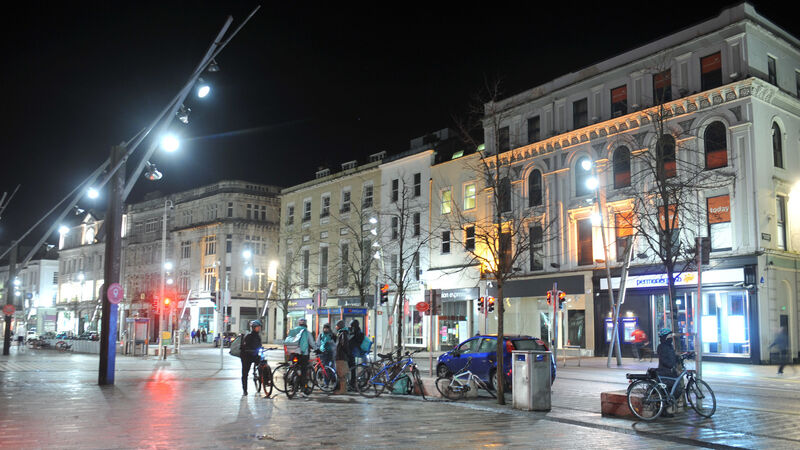Michael Moynihan: Dark stores are another step on the way to the apocalypse

Bicycle delivery riders gather on St Patrick's Street in Cork City. If you feel queasy about the potential for exploiting delivery workers, as appears to have happened in Berlin, then that should give you pause for thought.
The question keeps getting asked because it never gets answered.















